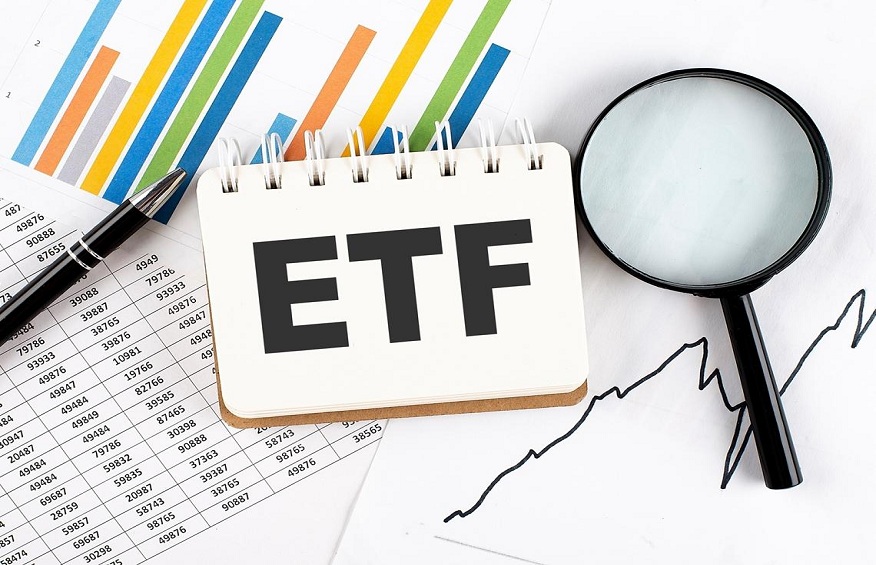Unlocking ETFs: Your gateway to diverse market exposure
Exchange-traded funds (ETFs) have emerged as a powerful and innovative tool for individual and institutional investors. With their ability to provide diversified market exposure, ETFs in the UK offer a convenient and efficient way to access various assets and sectors. By combining the benefits of a single security and the advantages of a diversified portfolio, ETFs present an attractive proposition for investors of all levels of experience.

Whether you’re a seasoned investor looking to enhance your portfolio or a novice investor seeking to enter the market, ETFs provide a flexible and accessible investment option to help you achieve your financial goals.
What are ETFs?
Exchange-traded funds (ETFs) are investment funds in the UK traded on stock exchanges, functioning similarly to individual stocks. Their primary objective is to closely mirror the performance of specific indexes, sectors, commodities, or asset classes.
By doing so, investors gain exposure to a diversified portfolio through one transaction, eliminating the need to buy each security individually. ETFs provide a convenient and efficient way to invest in a wide range of assets, offering flexibility and potential for long-term growth.
Advantages of investing in ETFs
There are several compelling reasons why ETFs have gained immense popularity among investors in the UK in recent years. First and foremost, ETFs offer an incredibly convenient and cost-effective way to get more exposure to a wide range of diverse assets. By investing in ETFs, individuals can easily access a diverse portfolio of securities without incurring the burden of individual transaction fees for each deposit.
One of the key advantages of ETFs is the transparency and liquidity they provide. As ETFs are traded on major stock exchanges daily, investors can buy or sell their shares anytime during market hours. This ease of trading allows investors to respond to market trends and capitalise on investment opportunities swiftly.
ETFs often boast lower expense ratios when compared to actively managed funds. It makes them an attractive and more cost-efficient option for long-term investment strategies. With lower expense ratios, investors can maximise their returns over time as more of their investment capital is put to work.
The combination of easy access to diverse assets, transparency, liquidity, and cost-efficiency make ETFs a highly favourable choice for investors seeking long-term growth and flexibility in their investment portfolios.
Accessing different markets with ETFs
ETFs provide investors a unique opportunity to access markets and sectors that may not be readily available through traditional investment avenues. They offer various options for diversifying portfolios and capitalising on market trends and opportunities.
For instance, sector-specific ETFs allow investors to concentrate their investments in specific industries, such as technology or healthcare. By doing so, they can align their portfolio with their investment goals and capitalise on the growth potential of these sectors. On the other hand, commodity-specific ETFs provide exposure to assets like gold or oil, allowing investors to participate in the performance of these commodities without directly owning them.
With their flexibility and broad range of offerings, ETFs have gained popularity among investors seeking to enhance their investment strategies. These investment vehicles not only facilitate diversification but also offer the possibility of long-term growth and stability. By incorporating ETFs into their investment portfolios, investors can access more comprehensive investment opportunities and optimise their overall returns.
Risks associated with ETFs
As with any investment, there are some risks of investing in ETFs. One of the main risks is market risk, where the overall performance of the market may impact the value of your investment. Economic conditions, geopolitical events, and market sentiment can influence it. Additionally, like individual stocks, ETFs have price fluctuations that can result in short-term gains or losses. Various factors, including company performance, sector trends, and investor sentiment, can drive these price movements.
To mitigate these risks, investors must conduct thorough research and understand the underlying holdings and strategy of an ETF before investing. It includes evaluating the diversification, expense ratios, and tracking errors of the ETF. Furthermore, investors should also consider their own risk tolerance and investment goals when deciding to allocate funds to ETFs. Using a broker like Saxo Markets can also provide valuable guidance and expertise in assessing ETFs that align with your investment objectives.
Choosing a suitable ETF for your portfolio
With hundreds of options available, selecting a suitable ETF for your portfolio can be a daunting task. The key is to identify your investment goals and risk tolerance, understand the underlying holdings of an ETF, and assess its performance history. It’s also essential to consider the expense ratio, tracking error, and liquidity of an ETF before making a decision. Additionally, investors in the UK should regularly review their portfolios and adjust as needed to align with their changing financial objectives.
All in all
ETFs in the UK offer a convenient and efficient way to gain exposure to diverse markets, sectors, commodities, or asset classes. Their benefits include cost-effectiveness, transparency, liquidity, and access to specialised needs. However, investors must conduct thorough research and carefully evaluate the risks of investing in ETFs. With proper due diligence and the help of a reputable broker, ETFs can be an effective tool for achieving long-term investment goals.
As with any investment, it’s essential to regularly review your trading portfolio to align with your changing financial objectives. ETFs provide a gateway to diverse market exposure, offering investors the potential for long-term growth and success in their financial endeavours.



